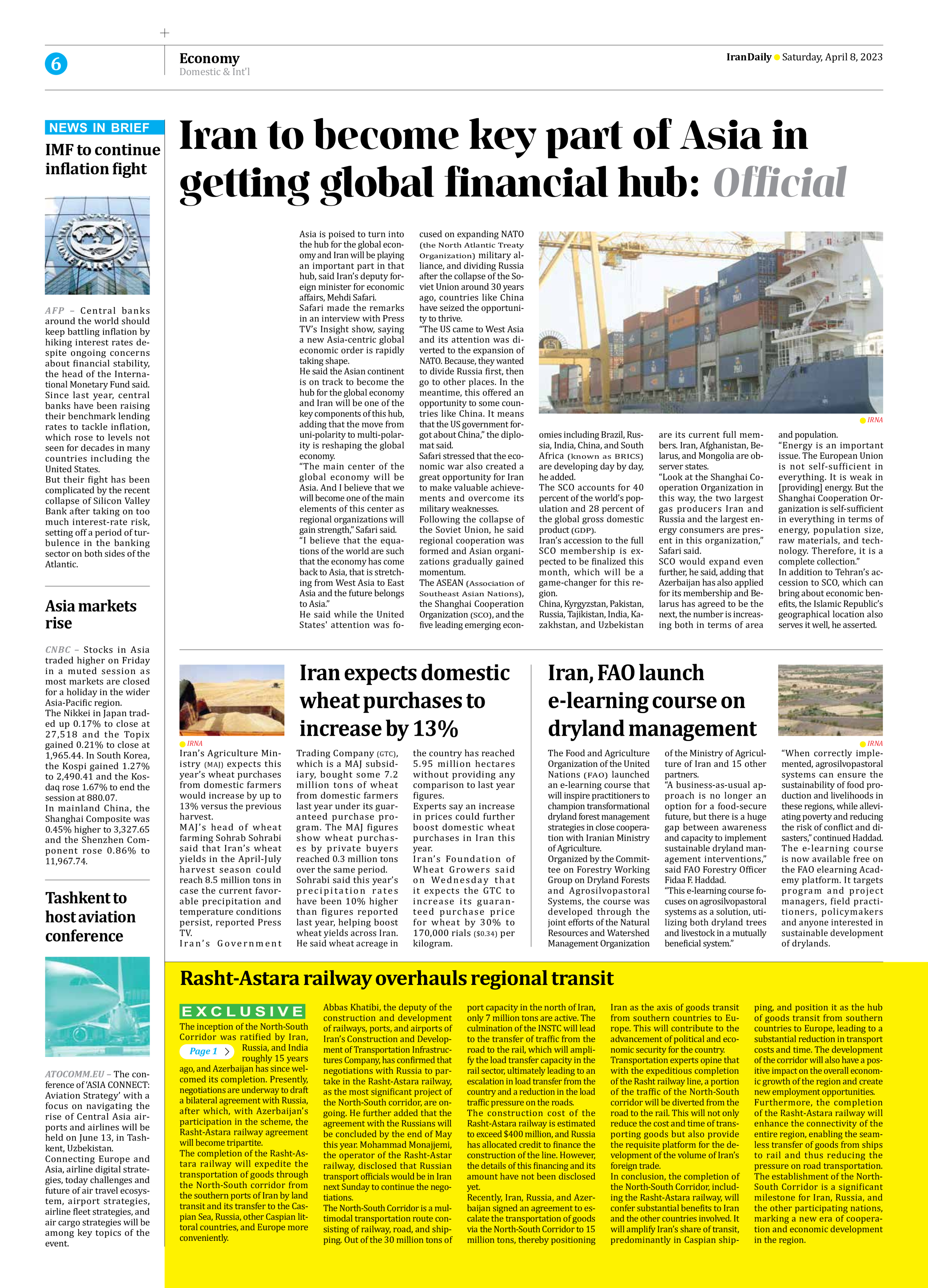
Iran to become key part of Asia in getting global financial hub: Official
Asia is poised to turn into the hub for the global economy and Iran will be playing an important part in that hub, said Iran’s deputy foreign minister for economic affairs, Mehdi Safari.
Safari made the remarks in an interview with Press TV’s Insight show, saying a new Asia-centric global economic order is rapidly taking shape.
He said the Asian continent is on track to become the hub for the global economy and Iran will be one of the key components of this hub, adding that the move from uni-polarity to multi-polarity is reshaping the global economy.
“The main center of the global economy will be Asia. And I believe that we will become one of the main elements of this center as regional organizations will gain strength,” Safari said.
“I believe that the equations of the world are such that the economy has come back to Asia, that is stretching from West Asia to East Asia and the future belongs to Asia.”
He said while the United States' attention was focused on expanding NATO (the North Atlantic Treaty Organization) military alliance, and dividing Russia after the collapse of the Soviet Union around 30 years ago, countries like China have seized the opportunity to thrive.
“The US came to West Asia and its attention was diverted to the expansion of NATO. Because, they wanted to divide Russia first, then go to other places. In the meantime, this offered an opportunity to some countries like China. It means that the US government forgot about China,” the diplomat said.
Safari stressed that the economic war also created a great opportunity for Iran to make valuable achievements and overcome its military weaknesses.
Following the collapse of the Soviet Union, he said regional cooperation was formed and Asian organizations gradually gained momentum.
The ASEAN (Association of Southeast Asian Nations), the Shanghai Cooperation Organization (SCO), and the five leading emerging economies including Brazil, Russia, India, China, and South Africa (known as BRICS) are developing day by day, he added.
The SCO accounts for 40 percent of the world’s population and 28 percent of the global gross domestic product (GDP).
Iran’s accession to the full SCO membership is expected to be finalized this month, which will be a game-changer for this region.
China, Kyrgyzstan, Pakistan, Russia, Tajikistan, India, Kazakhstan, and Uzbekistan are its current full members. Iran, Afghanistan, Belarus, and Mongolia are observer states.
“Look at the Shanghai Cooperation Organization in this way, the two largest gas producers Iran and Russia and the largest energy consumers are present in this organization,” Safari said.
SCO would expand even further, he said, adding that Azerbaijan has also applied for its membership and Belarus has agreed to be the next, the number is increasing both in terms of area and population.
“Energy is an important issue. The European Union is not self-sufficient in everything. It is weak in [providing] energy. But the Shanghai Cooperation Organization is self-sufficient in everything in terms of energy, population size, raw materials, and technology. Therefore, it is a complete collection.”
In addition to Tehran’s accession to SCO, which can bring about economic benefits, the Islamic Republic’s geographical location also serves it well, he asserted.







